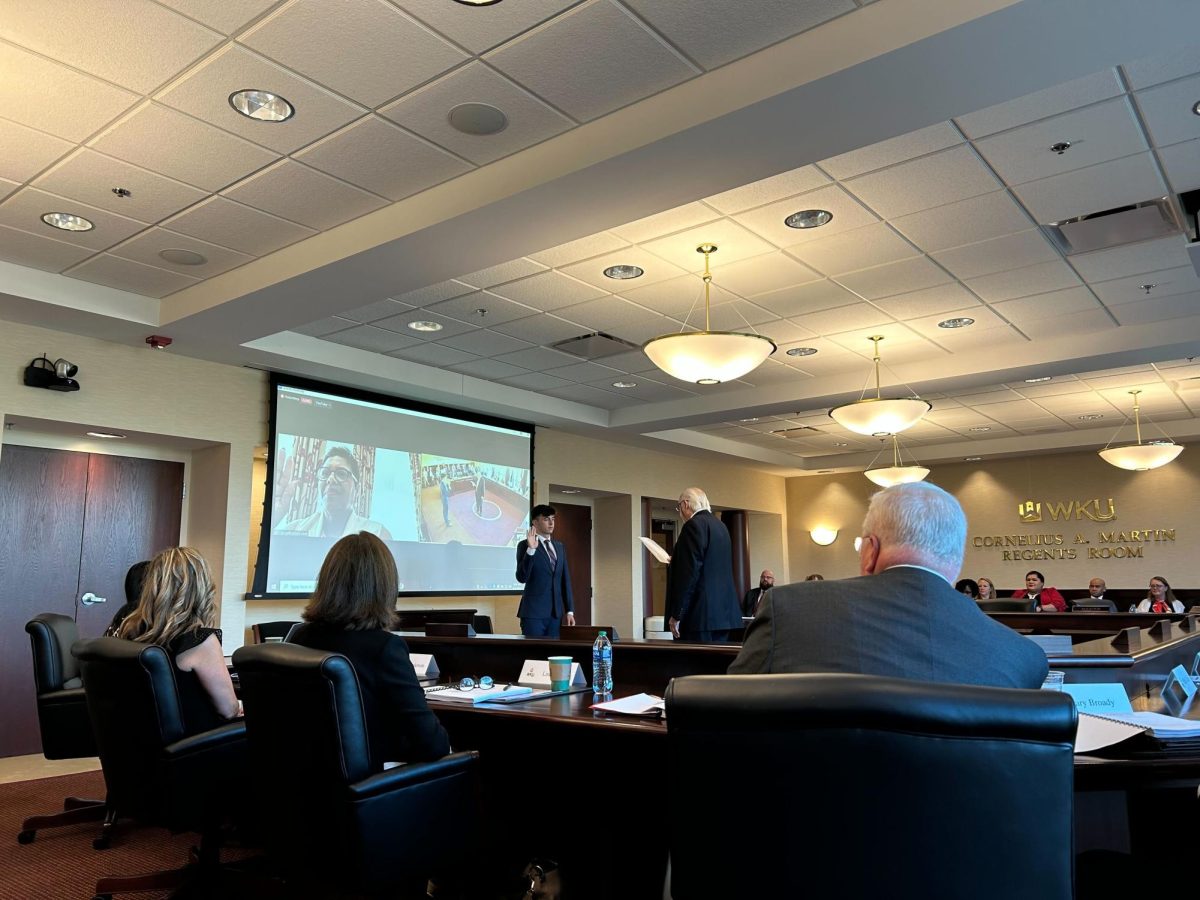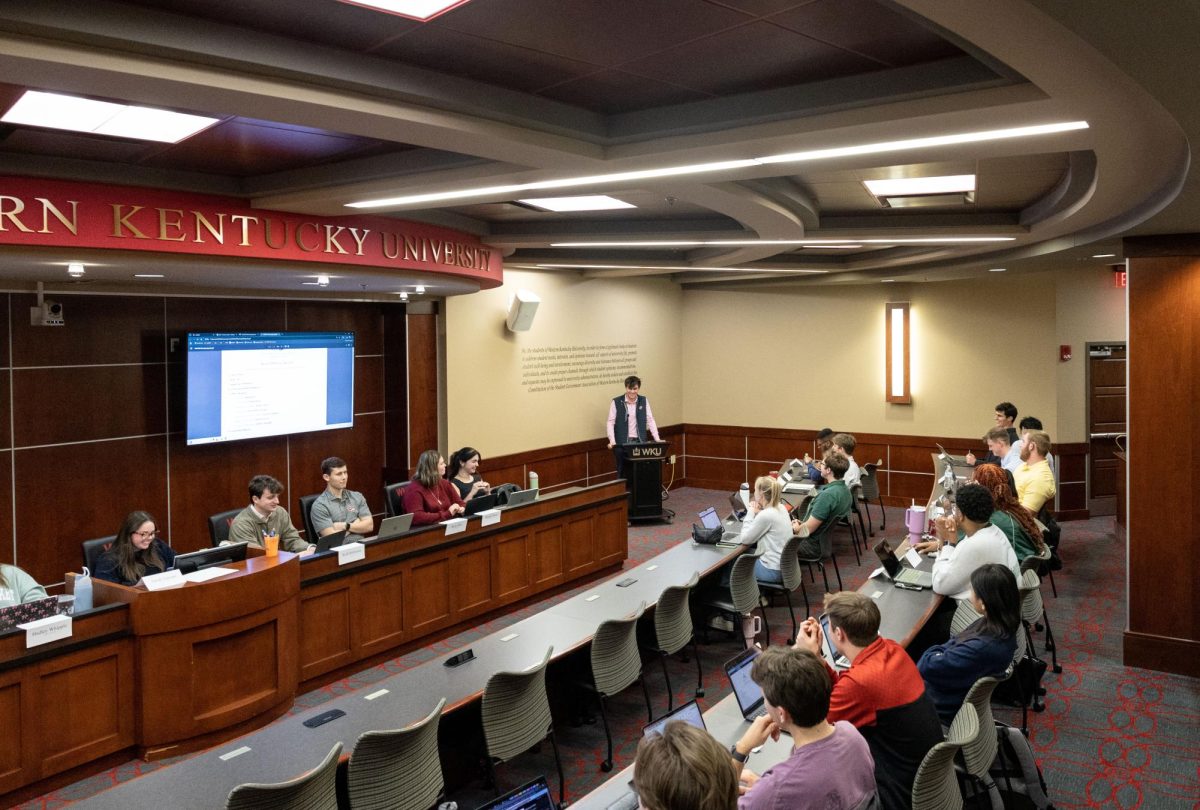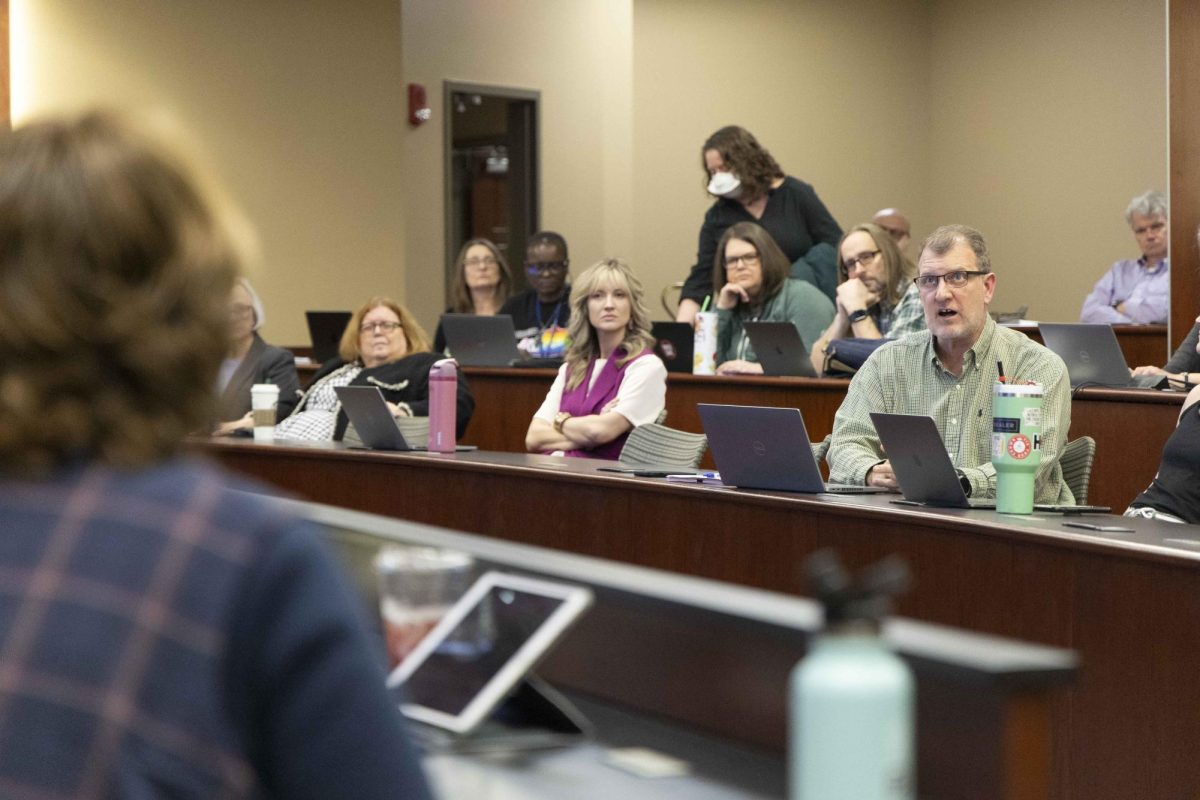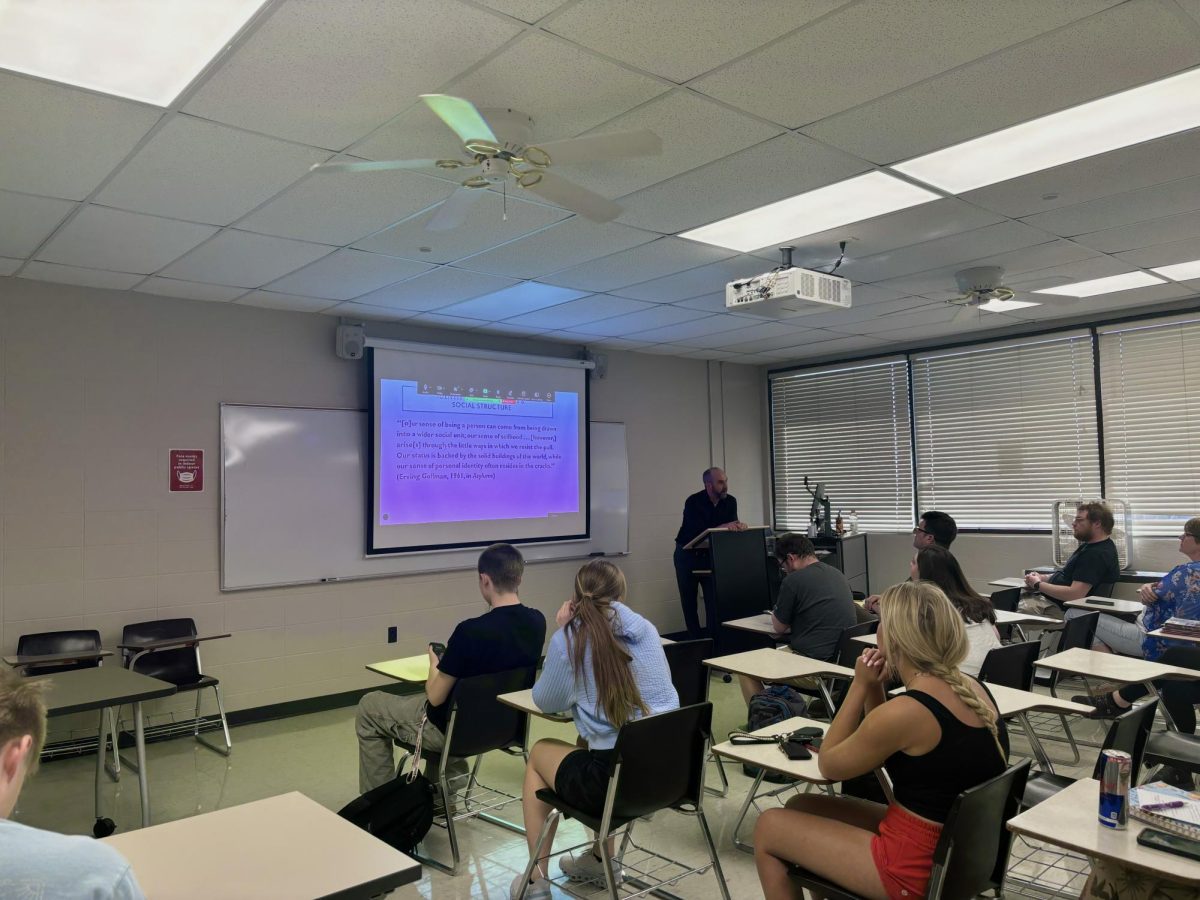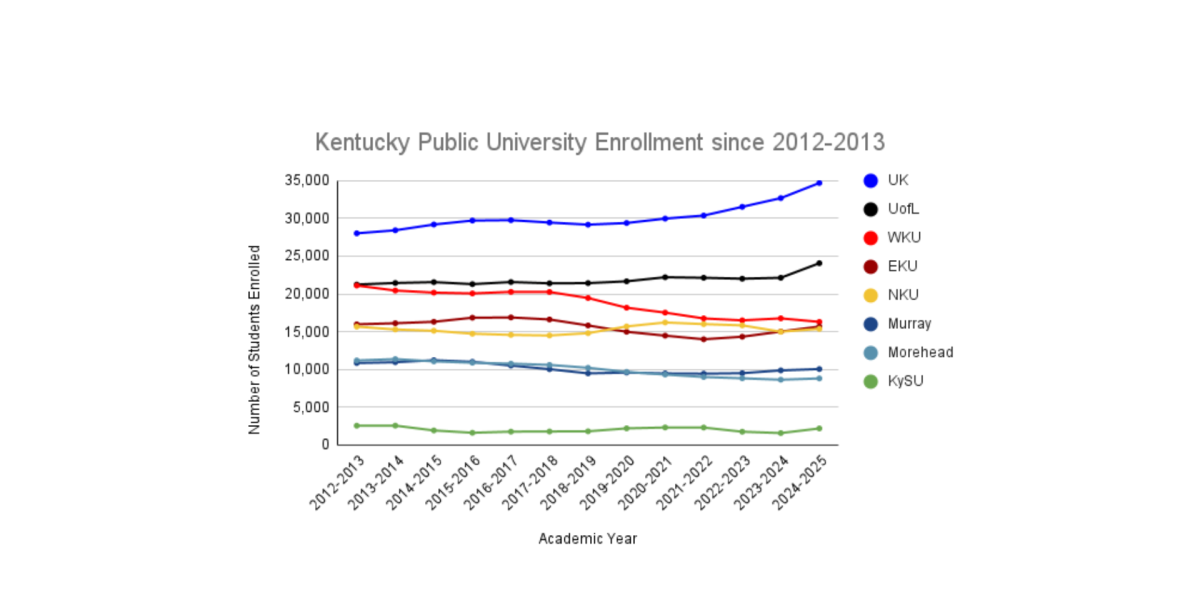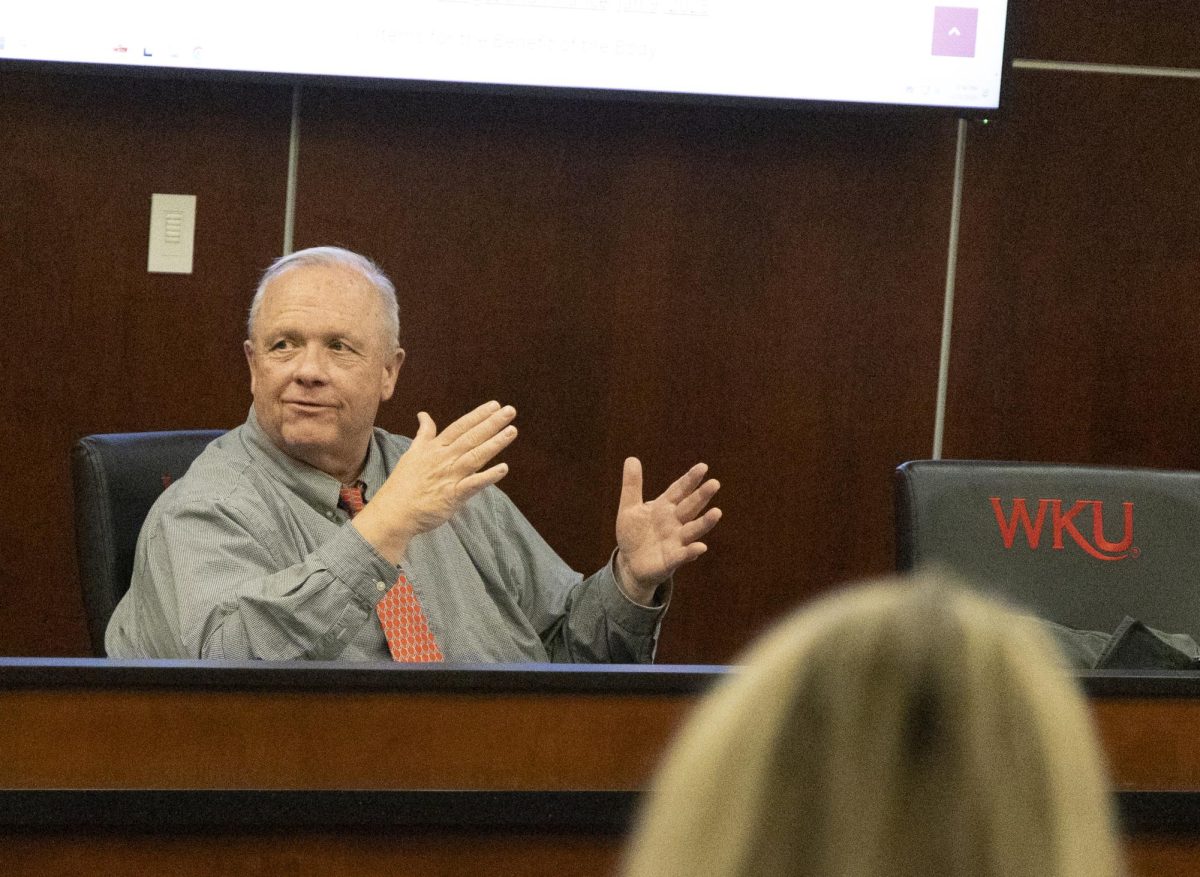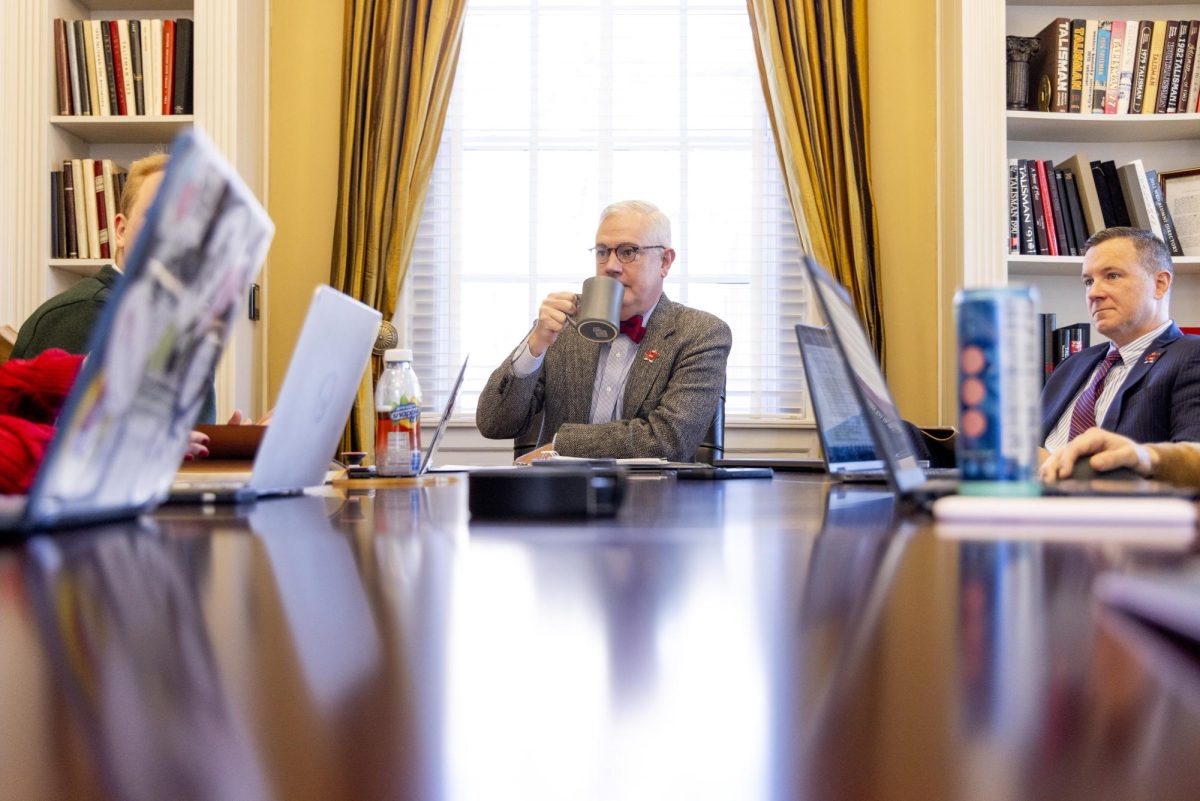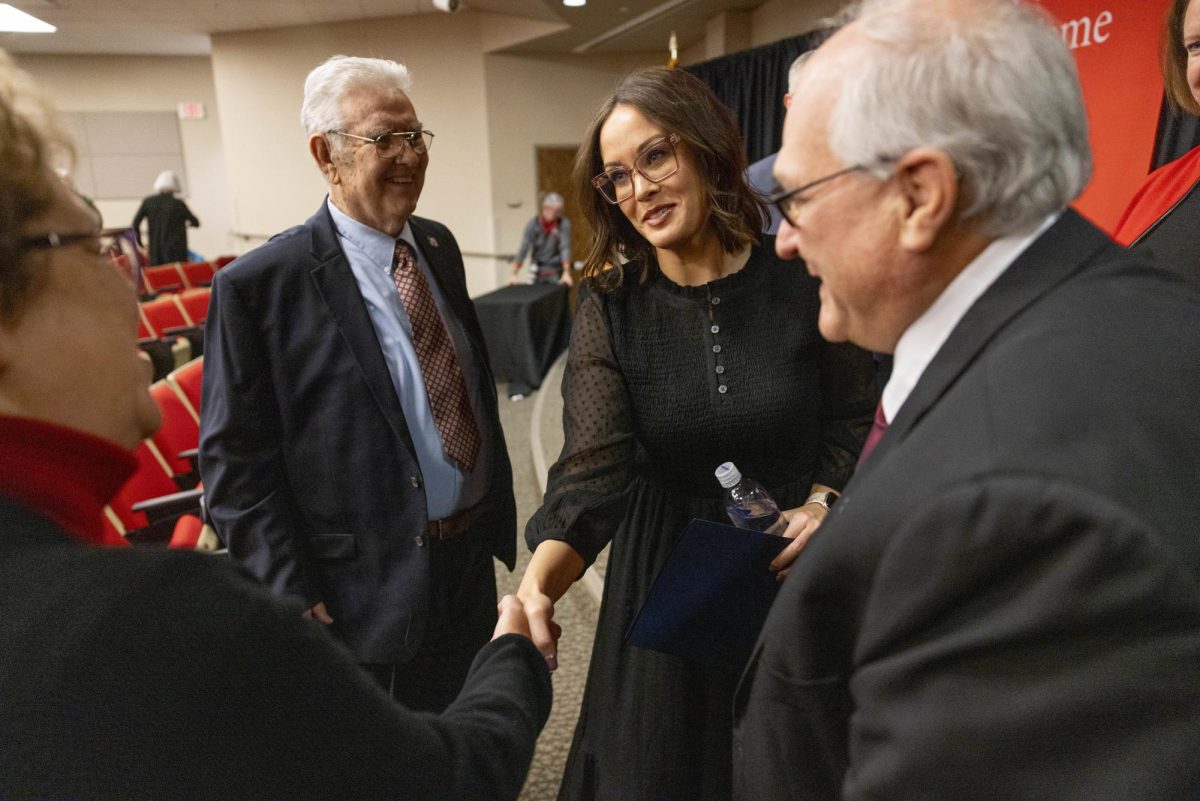WKU’s Board of Regents approved suspending the minor in photojournalism on Friday after a recommendation from the provost and faculty who said the minor would become “redundant” as one of WKU’s most successful academic programs is restructured.
“Photojournalism has changed dramatically over the last 10 to 15 years,” Bud Fischer, WKU provost and vice president of academic affairs, said. “What students want in that area is not only photojournalism, but just photography, and they also want filmmaking and documentary. They’re in the process of building a whole brand new curriculum as we speak.”
The suspension of the photojournalism minor, along with suspension of the floodplain management certificate, came during the regents’ third quarterly meeting, where the board also entered into new banking arrangements, agreed to let a private company operate WKU’s bus system alongside the city of Bowling Green, adopted a policy for editorial independence of WKU Public Media and welcomed two new members.
Action items previously presented at the academic affairs committee June 2 meeting were also all approved by the board. These included the approval of the undergraduate certificate in strategies for trauma informed approaches to improving resilience, teaching English to speakers of other languages and professional and technical writing. The suspension of the Russian and East European studies minor was also approved.
The finance and budget committee presented two action items not at the June 2 committee meeting, which were the approval of a transit management agreement addendum and approval of a banking services contract.
The transit management agreement plans to select a single operator for public transit services for the city of Bowling Green and WKU. The selected contractor is RATPDev, a transportation systems company.
“This is a small step towards a much longer vision of working collaboratively with the city to reimagine what public transit could be within Bowling Green, serving both WKU’s needs and the needs of the students, but also the need to the community as well,” Jennifer Tougas, WKU associate vice president of business said.
The plan was approved unanimously by the board, and the contract will go into effect on October 1. With the contract, WKU operations and transit routes will remain the same, with the largest change in that drivers will become RATPDev employees, unless they choose not to.
“The great advantage to having a shared transportation system is that there are places our students need to go that are not just to circulate around campus,” WKU President Timothy Caboni said. “They are places that citizens need to go here that are not regular transportation services.”
Caboni also said that the university will help provide ridership numbers for these transit systems, which influences federal funding. He explained that this partnership will advance Bowling Green and WKU.
The banking services contract presented was also approved. The new 10 year contract narrows the university’s banking to one central bank, J.P. Morgan Chase, and will be fully transitioned in by May 2024.
“It basically simplifies financial management and reduces the administrative burden, cost, savings, through a comprehensive banking package,” Susan Howarth, WKU executive vice president for strategy, operations and finance, said. “[…] Bank services, as you might imagine, when you go with a conference partner, we get better customer service on tailored financial solutions that you can’t have with multiple partners.”
The executive committee presented for approvals of athletic employment contracts for the head coaches of women’s soccer, women’s golf, women’s tennis, men’s golf and track. All were approved and were described as “formalizations of employment agreements” by Todd Stewart, WKU athletics director.
An approval for the code of editorial integrity policy for WKU public media was also presented by David Brinkley, director of public media, and was passed unanimously.
The code indicates that there will be no administrative power over editorial decisions made by WKU Public Media, which includes the WKU PBS and NPR broadcast and radio stations. This policy was presented due to administrative control over editorial decisions at other public media in the nation, including Murray State University in Kentucky.
“Since 1995, I’ve never run into this issue [at WKU],” Brinkley said. “But it doesn’t mean it doesn’t happen in other places. And one of the reasons it’s good that WKU can be leaders in this form is when we see areas adjacent to ours. For instance, the headlines they are putting up there, some instances these are perceptions and some they are realities, but they are also regional areas of influence.”
The board also welcomed regent Cynthia Nichols, who replaced former regent George Nichols, and new student regent Sam Kurtz, the student body president.
The fourth quarterly Board of Regents meeting will take place on December 7.
Editor-in-chief Alexandria Anderson can be reached at alexandria.anderson337@topper.wku.edu.


